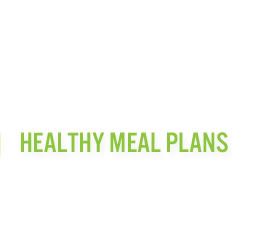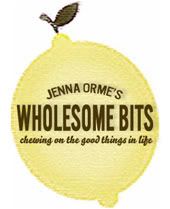
(photo credit: Getty images)
This is Part 1 of 3 in a series of posts about germs, best ways to cut down on them without harming our bodies, and how to naturally strengthen our immune system.
The cold and flu season is right around the corner and just recently I found a local grocery advertising "Flu Shots" already. Unfortunately, it is time to start thinking about germs, colds and sicknesses the cold weather can bring.
There is a lot of talk about germs, good hygiene, sterile environments and anti-bacterial hand and dish soaps. Germs are suppose to be bad and good hygiene best, right? Well, maybe not.
To begin, the immune system is similar to the muscular system in that it needs to be trained to work effectively. Without this training on what is bad, the immune system goes into overdrive and begins to attack itself instead of harmful pathogens.
There is a term rising up in the health world called "hygiene hypothesis" which essentially describes our society as being too hygienic. We are raising our infants and children in too much of a sterile environment that their little immune systems will unfortunately never reach their full potential. Here is a short description from an article written in the Wall Street Journal on this hypothesis.
According to the "hygiene hypothesis," first proposed in 1989, exposure to a variety of bacteria, viruses and parasitic worms early in life helps prime a child's immune system, much like sensory experiences program his brain. Without such early instruction, the immune system may go haywire and overreact with allergies to foods, pollen and pet dander or turn on the body's own tissue, setting off autoimmune disorders.
So now not only are scientists finding that an immature immune system brings on allergies, they are determining that other diseases may be associated with the hypothesis such as autism, bowel diseases, MS, obesity, and diabetes .
There is a fine line to distinguish here. The germs found in soil, plants and animals are different from those that we pick up from touching other human beings. The germs (microbes) found in dirt actually influence the maturation of the immune system. So in my opinion, we shouldn't be so concerned when our kids come in from playing to immediately send them to the bathroom to wash up. A little exposure to germs is a chance for the immune system to do it's work.
Interestingly, there was a study put out by the New England Journal of Medicine that concludes there were 30-50% fewer cases of childhood asthma seen in children who were raised on farms. It is not because of less pollution or cleaner air either... the reason? More contact with beneficial bacteria from animals, hay and unpasteurized milk. (You can read more about that here.)
Industrialized societies have been drawn into the gimmick that zero-bacteria environments are best. Over-sterilize everything you own including your body. But I believe we must allow our children a chance to get dirty and even possibly be sick once in awhile so their systems can learn to let itself get better. One person was stated by saying, "By killing all bacteria, both good and bad, our immune systems are left with nothing to do so they go and find something to do - and that is fight against what we eat - in other words, an allergy."
I use to be a clean freak. I remember spraying Lysol on all my kid's toys, furniture, walls, cribs... ugh. On Saturday mornings, you would find me standing in a shower scrubbing the walls with a bleach and soap mixture and later wheezing audibly like a longtime smoker. But I learned the hard way that this stuff isn't good for anyone.
Now, we do not sterilize our home with anti-bacterial products, but with vinegar and tea tree oil. We're not concerned when our children come in from playing outside. When we have been with friends or in contact with other adults, we wash up. Germs passed from one human to another - through touching - are almost always human fecal germs so this is the time to wash, but just with plain old soap and water.
In conclusion, I think we can be too clean. We need to allow our kids and our homes to be a little "dirty". We should let our kids play outside and touch nature. Their immune systems are learning to be vigorous and strong this way.




















